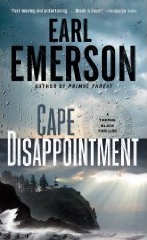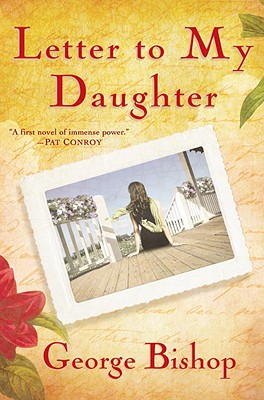 The ground-breaking, revolutionary equipment has arrived! Apple announced the iPad yesterday. Despite the many jokes regarding the feminine-hygiene-connotations of the name, it actually looks like a great product. Priced between $499-$850 (depending on size and capabilities), and weighing in at a mere 1.5 lbs, it looks to be a combination of an iPod/iPhone and a laptop... slightly more navigable than the small screen of the former (the screen of an iPad is 9.7" long), slightly more portable than the bulk of the latter. A full break-down of specs can be found on Apple's website or at Gizmodo.
The ground-breaking, revolutionary equipment has arrived! Apple announced the iPad yesterday. Despite the many jokes regarding the feminine-hygiene-connotations of the name, it actually looks like a great product. Priced between $499-$850 (depending on size and capabilities), and weighing in at a mere 1.5 lbs, it looks to be a combination of an iPod/iPhone and a laptop... slightly more navigable than the small screen of the former (the screen of an iPad is 9.7" long), slightly more portable than the bulk of the latter. A full break-down of specs can be found on Apple's website or at Gizmodo.It will run on the same OS as the iPod/iPhone, meaning the 100,000+ Apps in the App store will all work on the iPad. Sadly, as unlimited as the App store seems to be, this is in fact a bit limiting: software that runs on any 'normal' OS will not run on an iPad, making it more limited than a traditional laptop.
Sadly, the tablet does not seem quite as ground-breaking as it could have been. No camera, no multi-tasking (which means no web browser and e-mail app, no Pandora and web browser, no iTunes and iBooks). No word processor. It's still linked to the AT&T 3G network, which I think we've pretty much established is an excellent way to lose customers. AT&T cannot support the existing 3G demands from iPhone users, damaging its service to all customers. I shudder to think what an influx of iPad users will do to the network.
The best news for the publishing industry comes in the form of
 iBooks, a proposed e-bookstore that would come pre-loaded onto the iPad, and will (Apple hopes) parallel Apple's success with iTunes as an e-music store. The format looks like it will be similar to the Classics App (which I absolutely love). Books purchased will display on an e-bookshelf and as you read, you can flip paper-textured e-pages. You can see a sneak-peek here.
iBooks, a proposed e-bookstore that would come pre-loaded onto the iPad, and will (Apple hopes) parallel Apple's success with iTunes as an e-music store. The format looks like it will be similar to the Classics App (which I absolutely love). Books purchased will display on an e-bookshelf and as you read, you can flip paper-textured e-pages. You can see a sneak-peek here.Currently, the store plans to launch with e-book content from Hachette, S&S, Penguin, Macmillan and HarperCollins. Random House, you might notice, is suspiciously missing from the list. In a statement, however, Stuart Applebaum said, "Random House welcomes Apple's iPad and iBooks app and we look forward to our continuing conversations with them about how we might best work together." (from yesterday's PW announcement)
The iPad will run on the traditional e-Pub format, but it is still unclear if e-books obtained from outside the iBook store will work on the iPad as an e-reader (are you tired of all these vowels yet?). Technically, e-books in e-Pub work across various devices, including the Sony e-reader. Apple also has not clarified how it will address self-publishing (which Amazon offers for the Kindle).
 Most importantly, it looks like Amazon might face some threats from Apple in the world of how-we-price-e-books. The first book shown at the reveal was Ted Kennedy's, priced at $14.99. This morning, one guest on NPR reported that Apple will allow publishers to set the price of e-books in iBooks, and will simply take a cut of each book sold. This would be a huge challenge to the Amazon Kindle way of doing things, which is $9.99-or-bust. Whether or not this will give publishers enough of an opportunity to stand up against the Amazon giant we have yet to see, but many are hoping that the launch of an e-book store with the backing of a major corporation like Apple will give the publishing industry a chance to hit the 'reset' button on the production, marketing and sale of digital books...
Most importantly, it looks like Amazon might face some threats from Apple in the world of how-we-price-e-books. The first book shown at the reveal was Ted Kennedy's, priced at $14.99. This morning, one guest on NPR reported that Apple will allow publishers to set the price of e-books in iBooks, and will simply take a cut of each book sold. This would be a huge challenge to the Amazon Kindle way of doing things, which is $9.99-or-bust. Whether or not this will give publishers enough of an opportunity to stand up against the Amazon giant we have yet to see, but many are hoping that the launch of an e-book store with the backing of a major corporation like Apple will give the publishing industry a chance to hit the 'reset' button on the production, marketing and sale of digital books...The iPad will be available in March... expect a lot of buzz (and bashing) before then.













